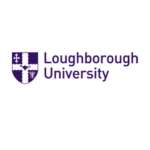Overview
Research Associate – Strand, London, WC2R 2LS
About Us
The Department of Infectious Diseases brings together researchers and students to understand the pathogenic mechanisms, diagnosis and treatment of human infections.
Our research bridges strengths in laboratory-based enquiry using molecular genetics, biochemistry, cell biology, microbiology and structural biology, with rich clinical resources in microbiology, virology, sexually transmitted diseases and clinical trials.
A major theme in the department is understanding how pathogens interact with their hosts to replicate, transmit, and evolve, and how infection- and vaccine-induced immunity protects us in the face of new and emerging threats.
The Odendall Laboratory, led by Dr Charlotte Odendall, is based within the Department of Infectious Diseases at King’s College London. Our research focuses on innate immunity and host–pathogen interactions, with a particular emphasis on how host signalling pathways are activated and subverted during infection. We combine molecular and cellular approaches with in vivo models to uncover the mechanisms that determine infection outcomes.
About the role
Inflammatory pathways at barrier sites act as gatekeepers between health and disease. The Odendall Laboratory investigates how immune responses at mucosal barrier sites control infection and how bacteria in turn evolve strategies to subvert these defences. By combining infection models with molecular analysis, we aim to uncover the pathways that determine whether pathogens are eliminated or establish disease.
Among these regulatory nodes are calcium-regulated kinases, including CaMKII, which we and others have found to be activated during infection and targeted by bacterial effectors (Alphonse et al, Cell 2022). Our recent work shows that CaMKII is required for signalling downstream of multiple innate immune receptors, and that its inhibition or deletion in vivo leads to increased bacterial burden and pathology. Together, these findings highlight CaMKII as a central node in the host–pathogen interface.
We are seeking a driven Postdoctoral Research Associate with a strong immunology and in vivo infection biology skillset to lead a high-impact project with two key aims: (1) to define the roles of CaMKII isoforms in epithelial and immune cells during infection, and (2) to determine, how loss of CaMKII activity alters host responses, inflammation, and bacterial pathogenesis in mouse models of infection.
The successful candidate will join a team within the Department of Infectious Diseases, a collaborative and supportive environment with strong links across King’s and the Francis Crick Institute.
Applicants should hold a PhD in immunology, infection biology, or a related discipline. Experience with mouse models of infection and/or inflammation is essential. Prior experience with bacterial infection models will be advantageous. A strong interest in innate immunity and host–pathogen interactions, and the ability to work both independently and collaboratively, are essential. The candidate will be expected to contribute data and writing to peer-reviewed manuscripts and will be supported for applications for independent fellowships towards the end of the post.
This is a full-time post (35 hours per week), and you will be offered a fixed-term contract for 2 years.
Research staff at King’s are entitled to at least 10 days per year (pro-rata) for professional development. This entitlement, from the Concordat to Support the Career Development of Researchers, applies to Postdocs, Research Assistants, Research and Teaching Technicians, Teaching Fellows and AEP equivalent up to and including grade 7. Visit the Centre for Research Staff Development for more information.
















